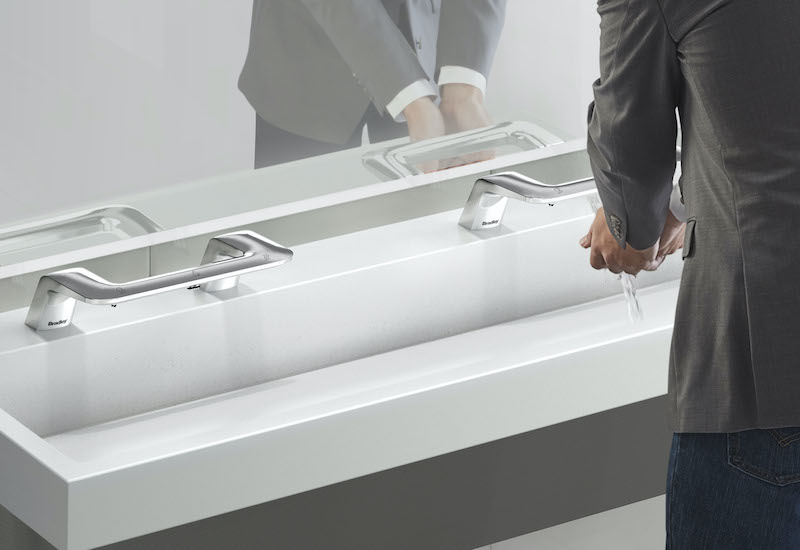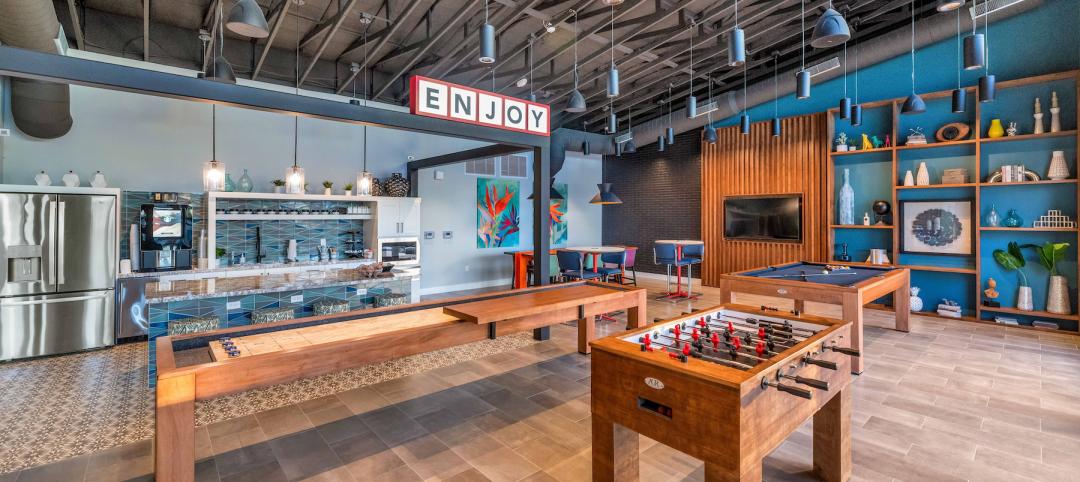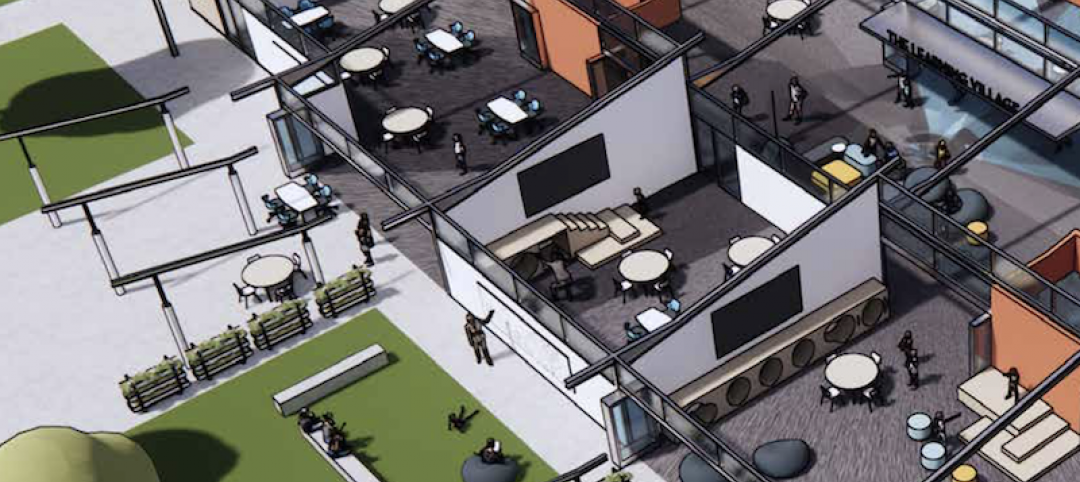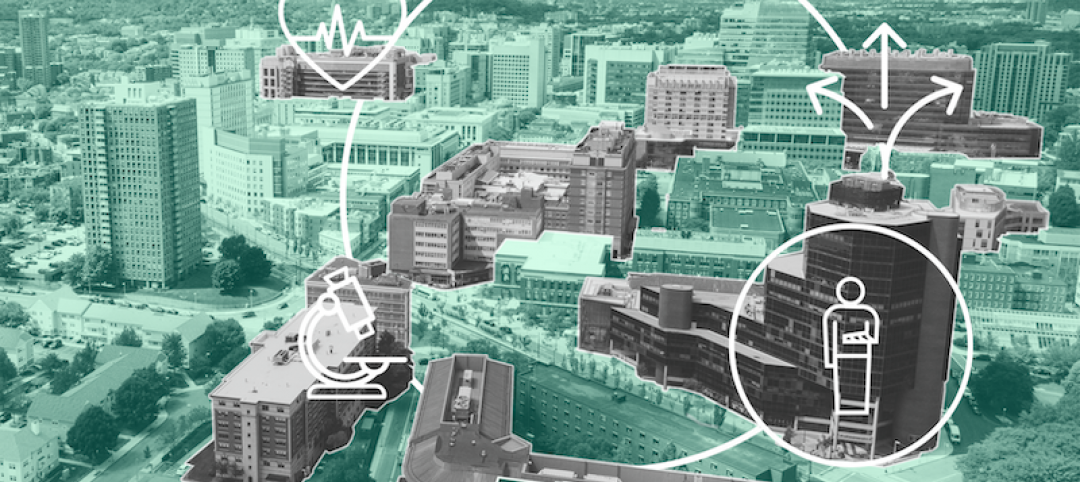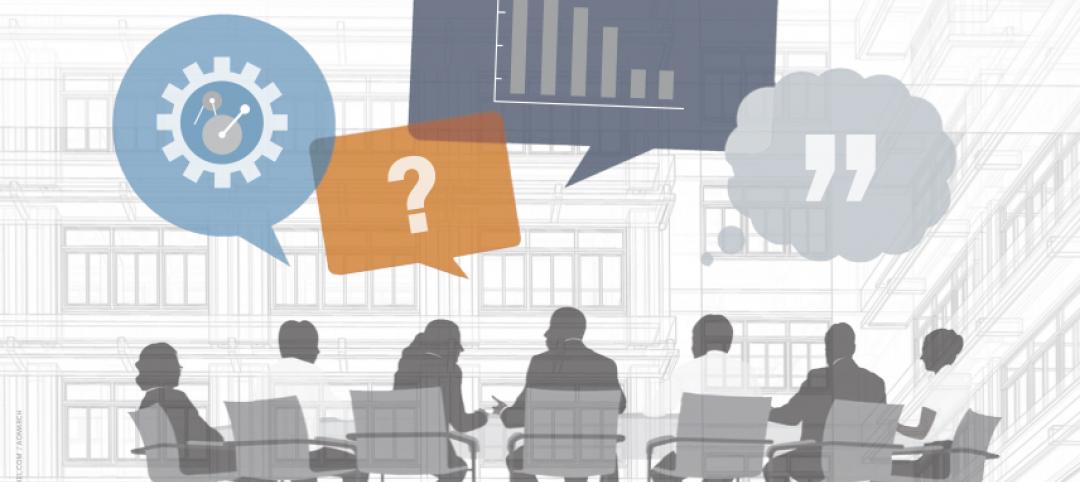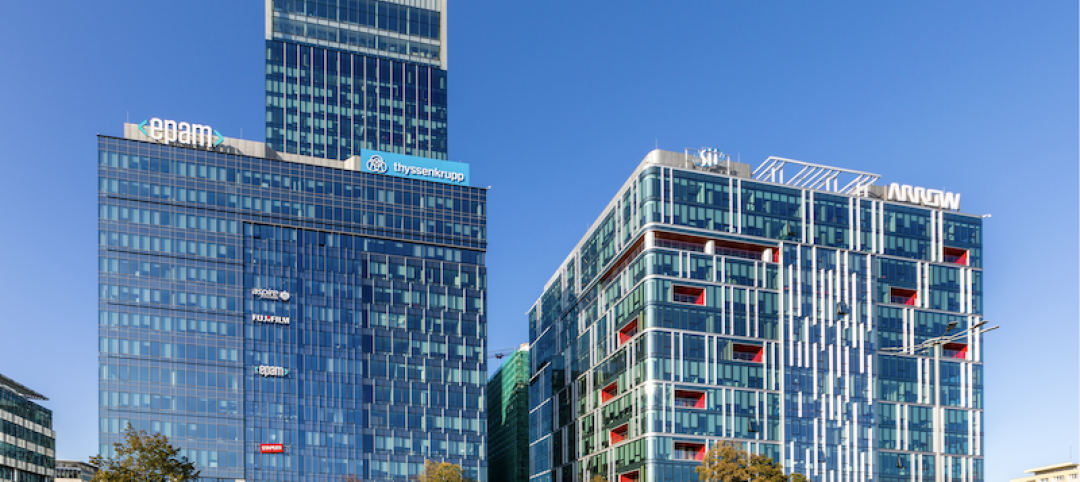Germaphobes rejoice! Public restrooms may soon become a much more sanitary place than they have been in the past thanks to the effects of COVID-19.
As the novel coronavirus spread rapidly around the world, people quickly became aware that perhaps the obsessive hand-washing, any-bathroom-is-touchless-if-you-try-hard-enough germaphobes among us may have had the right idea. And now, it is time for public restroom design to catch up to the current state of affairs.
“As businesses and public establishments reopen and Americans return to using facilities, all eyes are on public restrooms,” says Jon Dommisse, Director of Strategy and Corporate Development, Bradley Corp. “Today’s commercial washroom will be of paramount importance in providing hand washing systems and supplies, and mitigating sickness-causing germs.”
Below are commercial restroom upgrades, as outlined by Bradley Corp., to help improve hand washing and minimize germs.
1. Post signage. Reinforce cleanliness with friendly reminders about washing hands for 20 seconds per Centers for Disease Control (CDC) guidelines, maintaining safe distances between users, throwing away paper towels, etc. The Healthy Hand Washing Survey by Bradley Corp. shows that 40% of Americans increase hand washing when signs are posted.
2. Offer touchless fixtures. Cross contamination of germs in restrooms can be reduced by using touch-free fixtures for everything from soap, faucets, hand dryers/towels, doors and flushers. Public health experts agree: “Under any circumstance, using touchless fixtures helps to inhibit the spread of germs in restrooms and buildings,” says medical microbiologist Michael P. McCann, Ph.D., Professor of Biology, Saint Joseph's University. “The more we avoid restroom touchpoints, the healthier and easier our operations will be. Hands-free washrooms are a win-win for consumers and businesses.”
Research shows that consumers are highly in favor of using touch-free fixtures. “91% of Americans believe it’s extremely or somewhat important that public restrooms are equipped with touchless fixtures,” Dommisse said. “In fact, making everything touchless is Americans’ most requested improvement in restrooms.”
3. Increase cleaning, sanitization and restocking. Proper and frequent cleaning and disinfection is key for restrooms, especially for high-touch surfaces, such as doorknobs, faucets, sinks, toilets, stall door openers and paper towel dispensers. According to the CDC, daily cleaning with soap and water reduces germs, dirt, and impurities on the surface, and should be done frequently, especially if there is high traffic.
“It’s also important to disinfect surfaces to kill germs at least once daily, and more often if the restroom is busy,” Dr. McCann said. Finally, be sure to check and restock supplies regularly. Experiencing unclean low-stocked restrooms are pet peeves for restroom users.
4. Provide trash cans and hand sanitizer near exits. “Our research shows that 65% of Americans use paper toweling to avoid contact with restroom doors and faucets,” Dommisse said. “Keeping paper towels and waste containers near doorways can be helpful so people can throw them away upon exiting.”
Installing hand sanitizers outside restrooms is another way people can sanitize their hands upon entering and leaving the restroom.
5. Prop open doors to increase visibility and minimize contact. To limit the number of people in restrooms and encourage social distancing, a propped open door can give people a small window into seeing how many others are already inside. In addition, a slightly opened door allows people to maneuver the door with their elbow, as opposed to their hands.
Related Stories
Multifamily Housing | Jul 7, 2021
Make sure to get your multifamily amenities mix right
One of the hardest decisions multifamily developers and their design teams have to make is what mix of amenities they’re going to put into each project. A lot of squiggly factors go into that decision: the type of community, the geographic market, local recreation preferences, climate/weather conditions, physical parameters, and of course the budget. The permutations are mind-boggling.
Multifamily Housing | Jun 30, 2021
A post-pandemic ‘new normal’ for apartment buildings
Grimm + Parker’s vision foresees buildings with rentable offices and refrigerated package storage.
Multifamily Housing | Jun 23, 2021
COVID-19’s impact on multifamily amenities
Multifamily project teams had to scramble to accommodate the overwhelming demand for work-from-home spaces for adults and study spaces for children.
K-12 Schools | Jun 20, 2021
Los Angeles County issues design guidelines for extending PreK-12 learning to the outdoors
The report covers everything from funding and site prep recommendations to whether large rocks can be used as seating.
Coronavirus | May 17, 2021
Future pandemic preparedness at the medical district scale
The current COVID-19 pandemic highlights the concern that we will see more emergency events in the coming years.
University Buildings | Apr 29, 2021
The Weekly Show, April 29, 2021: COVID-19's impact on campus planning, and bird management strategies
This week on The Weekly show, BD+C Senior Editor John Caulfield interviews a duo of industry experts on 1) how campus planning has changed during the pandemic and 2) managing bird infestations on construction sites and completed buildings.
Multifamily Housing | Apr 22, 2021
The Weekly Show, Apr 22, 2021: COVID-19's impact on multifamily amenities
This week on The Weekly show, BD+C's Robert Cassidy speaks with three multifamily design experts about the impact of COVID-19 on apartment and condo amenities, based on the 2021 Multifamily Amenities Survey.
Industry Research | Apr 9, 2021
BD+C exclusive research: What building owners want from AEC firms
BD+C’s first-ever owners’ survey finds them focused on improving buildings’ performance for higher investment returns.
Coronavirus | Mar 31, 2021
Theatrical fog formula approved as antimicrobial air treatment
At least two solutions are being used to make ventilation systems safer.
Office Buildings | Mar 30, 2021
WELL Institute certifies a gigantic office complex with its highest health and safety rating
Poland’s Olivia Business Center one of the first to install ion air purification devices.


